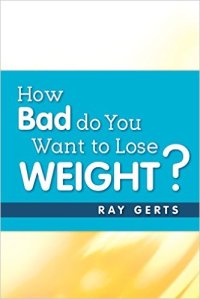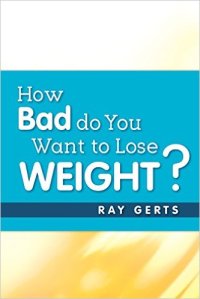High fructose corn syrup (HFCS) and regular sugar are about the same, nutritionally. Both are bad for your health when consumed in excessive amounts because eating too much of either one might promote weight gain, and neither sweetener has any nutritive value beyond the calories. Some people believe HFCS is more dangerous to your health than regular sugar, but those claims aren't based on scientific findings.
First, I'll agree with part of this post, but what they don't tell you is the "regular sugar" they're talking about is refined sugar. The big difference in refined sugar and natural sugar is how it enters the blood stream. Refined sugar or the manufactured chemical like "high fructose corn syrup" will give you that sugar rush because it enters the bloodstream like a rocket ship and then it has that drop off effect like you might have with a drug addiction. Natural sugar that you find in fruit and vegetables will enter the bloodstream much slower and doesn't have that drop off effect you might get with a chemical dependence. So natural is better in my mind, but having said that, both have calories and both types of calories are bad for your diet.
First, a Little Sugar Chemistry
Each molecule of regular sugar, chemically known as sucrose, is made up of two single sugar units called glucose and fructose. Glucose is the sugar your body likes best for energy, and it's found in all the sugary and starchy foods you eat. Fructose is the main sugar found in fruits. Your body can use fructose as energy too; it just requires a little extra work.
All sugar, whether white sugar, brown sugar, turbinado sugar or honey is the same -- half fructose and half glucose.High fructose corn syrup is produced from corn starch, and it's also made up of fructose and glucose molecules. Not exactly half and half, like sugar, but close -- formulations range from about 42 percent to 55 percent fructose. The amount of fructose may be "high" in comparison with regular corn syrup (which is actually low in fructose) but actually is about the same as regular sugar. Therefore, both sugar and HFCS have about the same metabolism and the same effect on your health -- that is, if you eat too much, the extra calories get stored as fat.
So Why Is HFCS Demonized?
There are a couple of reasons for that, both having to do with misunderstanding research. One reason involves a little conflation of research studies and the other is about confusing correlation and cause.
First, the fructose conflation. Studies performed with lab animals indicated eating diets high in fructose could lead to excessive weight gain, insulin resistance, high blood pressure and high triglycerides -- all bad things.
Since "fructose" sounds a lot like "high fructose corn syrup" and nothing like "regular sugar," some people conflate the two and decide HFCS is dangerous, but that somehow sugar isn't so bad.
It's possible that getting a large percentage of your calories from fructose every day could cause more weight gain than calories consumed from other sugar sources -- at least if you are a lab rat (human studies haven't backed up that claim). But, what if you just eat too much fructose in general -- because you eat too much food? And what if a lot of that fructose comes from HFCS because it happens to be a common ingredient? That brings me to the second reason for demonizing HFCS, confusion between cause and correlation.
High fructose corn syrup is cheaper than regular sugar, so it's used as an ingredient in processed foods and beverages has increased over the past few decades. During that same time, rates of obesity, cardiovascular disease and type II diabetes have also gone up in the United States and some people blame that increase on the concurrent rise of HFCS consumption.
Increased caloric intake from HFCS might be part of the problem -- not because HFCS is inherently evil -- but because Americans have increased their calories in general. In that case, HFCS is just a scapegoat, and there's no good reason to believe that sticking to sugar as an ingredient would make any difference.
Food Fight -- Who's the Winner?
There isn't a winner here -- HFCS and regular sugar are both okay in small amounts and both bad if you eat too much -- but about equally; one isn't worse than the other. Too much sugar or HFCS will have a negative effect on the body by increasing the levels of blood lipids like triglycerides and can contribute to weight gain when you consume too much.
How much is too much? That depends on your overall daily calorie needs, but you can probably have about 100 to 200 discretionary calories to spend on a few grams of sugar or HFCS every day.
This is a post that first appeared on VeryWell website and I have my own opinion on this debate. Sugar in it's purest form which is straight from the plant would be my only choice for a sweetener. Having said that, I don't use sugar or sugar substitutes and avoid processed foods totally. And I don't believe that a chemical substitute for a natural product like sugar cane is harmless to the human body.
I believe that over time the human race will find that replacing real food with manufactured food was a big mistake and manufactured food is what causes all our health problems.
If you really want to lose your body fat than look for my Ebook at the websites listed below. You'll get information on Healthy eating, exercise, and diet.
“How Bad Do You Want To Lose Weight?”, is available at all the online bookstores selling for $1.99. Go to any of the websites and search the title to find my Ebook. This book gives you all you need to lose weight without spending money on gym memberships, diet plans or meal plans. Look for my book. at Amazon.com, B&N.com, iBooks, Kobo.com, Scribd.com, or Gardner Books in the U.K.


/about/172080973-56a6b4d35f9b58b7d0e4630b.jpg)

